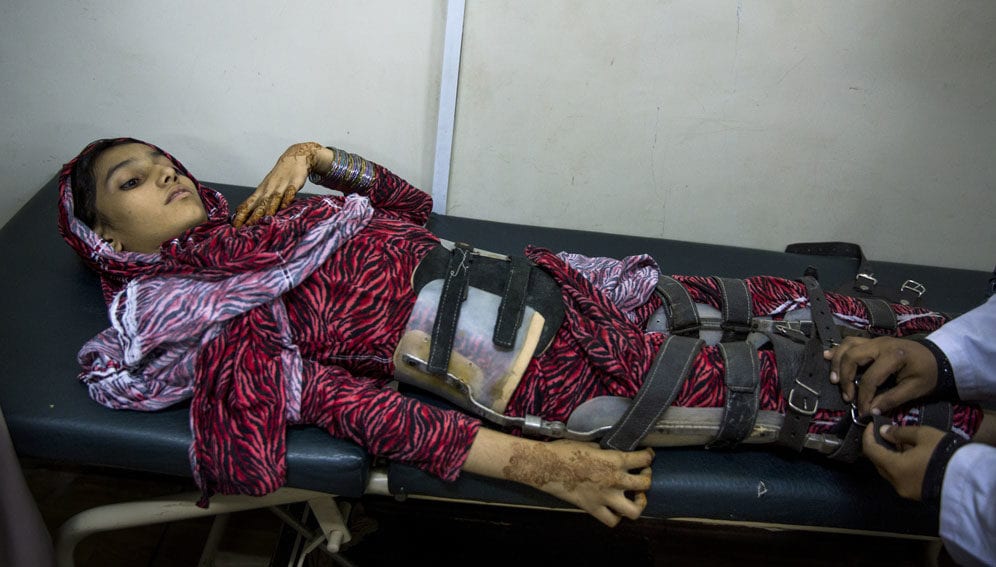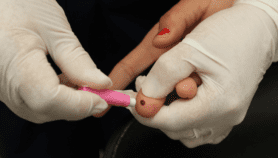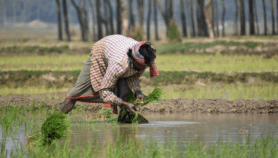By: Saleem Shaikh
Send to a friend
The details you provide on this page will not be used to send unsolicited email, and will not be sold to a 3rd party. See privacy policy.
[ISLAMABAD] By raising awareness of the benefits of vaccination Pakistan may overcome refusal and non-compliance with vaccination schedules — major factors in the country’s poor child-immunisation performance, a new study suggests.
Vaccination, considered the single biggest contribution to public health worldwide, has already resulted in the eradication of smallpox, a disfiguring viral disease. But as the world is poised to eradicate poliomyelitis, Pakistan — along with Afghanistan and Nigeria — remains the last refuge of the virus responsible for the often crippling, childhood pestilence.
“We found that only 30.8 per cent of the children surveyed were fully vaccinated while 46 per cent had incomplete vaccination status and 23 per cent were never vaccinated”
Asad Ali, Aga Khan University
According to the authors of the study, published September in the journal Vaccine, suboptimal immunisation presents the risk of continued disease outbreaks with associated child morbidity and mortality. This raises questions on the country’s ability to meet the UN’s health-related sustainable development goals.
Based on a cross-sectional survey conducted in 2014 involving 8,400 households in Sindh province with children aged 4—12 months, the study used a WHO-recommended rapid coverage assessment technique.
“Analysing datasets from 8,400 households, we found that only 30.8 per cent of the children surveyed were fully vaccinated while 46 per cent had incomplete vaccination status and 23 per cent were never vaccinated,” says Asad Ali, a study author and associate professor of paediatrics and child health at the Aga Khan University, Karachi.
Ali tells SciDev.Net that the “the most frequently reported reasons for non-vaccination include mothers or caregivers being unaware of the need for vaccination (35.3 per cent), fear of side effects (23 per cent), mother/caregiver being too busy (16.6 per cent), distance from vaccination centres (13.8 per cent), and non-availability of vaccinators or vaccines (10.7 per cent) ”.
Vaccine coverage in Sindh declined from 37 per cent in 2007 to 29 per cent in 2013, while there have been marginal increases in the other three provinces of Punjab, Balochistan and Khyber-Pakhtunkhwa, Ali says.
Syed Jamal Raza, director of the National Institute of Child Health, Karachi, estimates that 27 per cent of the deaths of children under-five in Sindh province could be linked to poor vaccination.
Pakistan has one of the highest rates of under-five child mortality within South Asia, recording 89 deaths per 1,000 live births. According to the Pakistan Demographic and Health Survey (2017–2018), only 66 per cent of children aged 12—23 months are fully vaccinated.
Saqlain Ahmad Gilani, who heads Pakistan’s National Expanded Programmed on Immunisation (EPI), says problems associated with purchase, transportation, safe storage and timely delivery of vaccines to remote rural areas are to blame for the dismal vaccination performance.“Heightened and constant public education through mass media channels, particularly radio, about the importance and benefits of the vaccination and its availability at EPI centers is key,” says Khalid Shafi, former secretary-general, Pakistan Paediatric Association.
This piece was produced by SciDev.Net’s Asia & Pacific desk.














